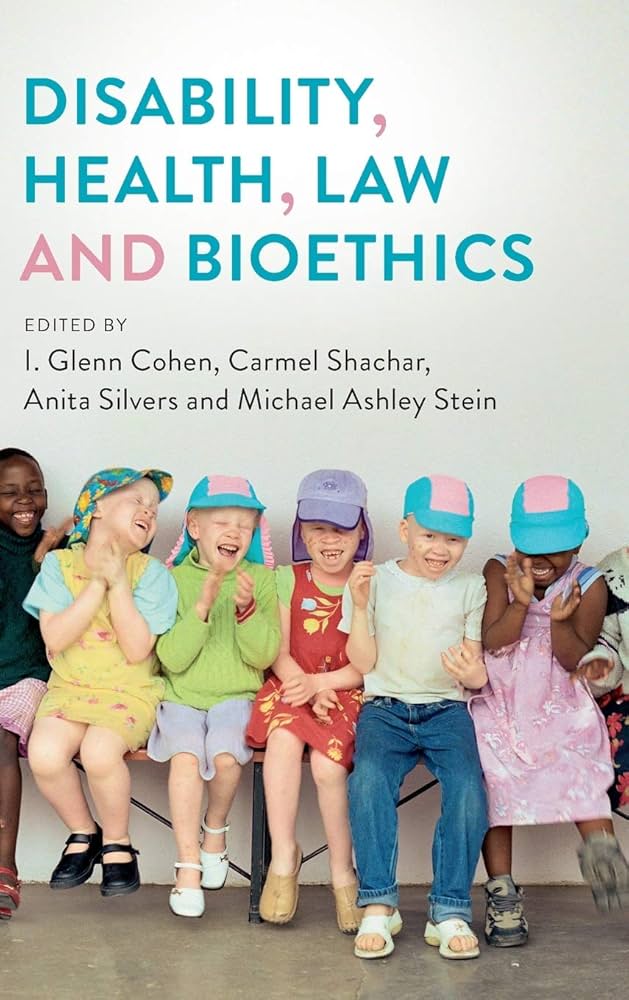Disability, Health, Law, and Bioethics

Editors: I. Glenn Cohen, Carmel Shachar, Anita Silvers, and Michael Ashley Stein
Publisher: Cambridge University Press
Publication Date: May 2020
This edited volume is based on the Petrie-Flom Center’s 2018 annual conference, which brought together leading experts to construct a twenty-first century conception of disablement that resolves the tension about whether being disabled is merely neutral or must be bad, to examine and articulate the clinical, philosophical, and practical implications of that determination, and to attempt to integrate these conclusions into medical and legal practices.
The conference was sponsored by the Petrie-Flom Center for Health Law Policy, Biotechnology, and Bioethics at Harvard Law School in collaboration with the Harvard Law School Project on Disability, and was cosponsored by the Center for Bioethics at Harvard Medical School, with support from the Oswald DeN. Cammann Fund at Harvard University.
From the Publisher:
“Historically and across societies people with disabilities have been stigmatized and excluded from social opportunities on a variety of culturally specific grounds. In this collection, the authors explore the impact that the philosophical framing of disability can have on public policy questions, in the clinic, in the courtroom, and elsewhere. They examine the implications of this understanding for legal and policy approaches to disability, strategies for allocating and accessing health care, the implementation of the Americans with Disabilities Act, health care rights, and other legal tools designed to address discrimination. This volume should be read by anyone seeking a balanced view of disability and an understanding of the connection between the framing of disability and policies that have a real-world impact on individuals.“